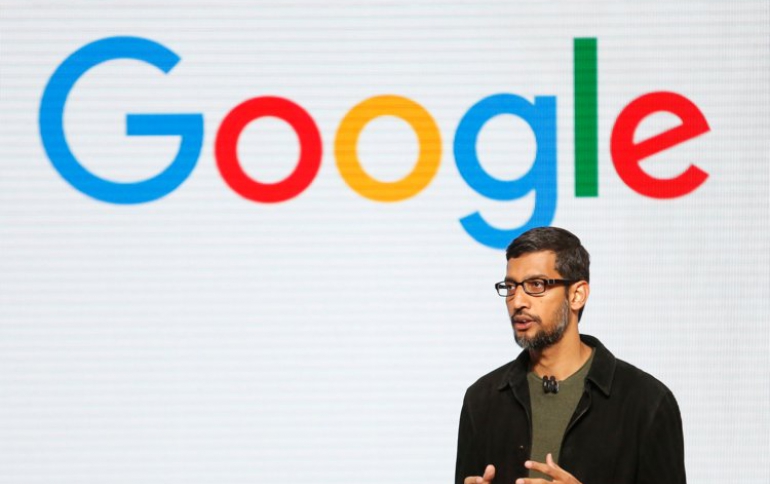
Google Uses Deep Learning to Predict When a Patient Will Die
Researchers at Google have demonstrated that neural networks can be used to identify relevant information from the patient's data and create accurate and scalable predictions for a variety of clinical scenarios.
The promise of digital medicine stems in part from the hope that, by digitizing health data, we might more easily leverage computer information systems to understand and improve care. In fact, routinely collected patient healthcare data are now approaching the genomic scale in volume and complexity. Unfortunately, most of this information is not yet used in the sorts of predictive statistical models clinicians might use to improve care delivery.
In spite of the richness and potential of available data, scaling the development of predictive models is difficult because, for traditional predictive modeling techniques, each outcome to be predicted requires the creation of a custom dataset with specific variables. It is widely held that 80% of the effort in an analytic model is preprocessing, merging, customizing, and cleaning datasets, not analyzing them for insights. This limits the scalability of predictive models.
Recent developments in deep learning and artificial neural networks may allow us to address many of these challenges and unlock the information in the EHR. Deep learning emerged as the preferred machine learning approach in machine perception problems ranging from computer vision to speech recognition, but has more recently proven useful in natural language processing, sequence prediction, and mixed modality data settings. These systems are known for their ability to handle large volumes of relatively messy data, including errors in labels and large numbers of input variables. A key advantage is that investigators do not generally need to specify which potential predictor variables to consider and in what combinations; instead neural networks are able to learn representations of the key factors and interactions from the data itself.
Google researches believe that deep learning approaches could incorporate the entire electronic health record, including free-text notes, to produce predictions for a wide range of clinical problems and outcomes that outperform traditional predictive models. Google's central insight was that rather than explicitly harmonizing EHR data, mapping it into a highly curated set of structured predictors variables and then feeding those variables into a statistical model, they could instead learn to simultaneously harmonize inputs and predict medical events through direct feature learning.
Google proposed a representation of patients' entire raw EHR records based on the Fast Healthcare Interoperability Resources (FHIR) format. The researchers demonstrate that deep learning methods using this representation are capable of accurately predicting multiple medical events from multiple centers without site-specific data harmonization.
The researches validated their approach using de-identified EHR data from two US academic medical centers with 216,221 adult patients hospitalized for at least 24 h. In the proposed sequential format, this volume of EHR data unrolled into a total of 46,864,534,945 data points, including clinical notes.
Google says that deep learning models achieved high accuracy for tasks such as predicting: in-hospital mortality, 30-day unplanned readmission, prolonged length of stay, and all of a patient's final discharge diagnoses.
For example, woman with late-stage breast cancer came to a city hospital, fluids already flooding her lungs. She saw two doctors and got a radiology scan. The hospital's computers read her vital signs and estimated a 9.3 percent chance she would die during her stay.
Google's new type of algorithm created by the company read up on the woman -- 175,639 data points -- and rendered its assessment of her death risk: 19.9 percent. She passed away in a matter of days.
According to Google, these models outperformed traditional, clinically-used predictive models in all cases.
"We believe that this approach can be used to create accurate and scalable predictions for a variety of clinical scenarios. In a case study of a particular prediction, we demonstrate that neural networks can be used to identify relevant information from the patient's chart," Gooole says.
Google's next step is moving this predictive system into clinics, AI chief Jeff Dean told Bloomberg News in May. Dean's health research unit is working on a slew of AI tools that can predict symptoms and disease with a level of accuracy that is being met with hope as well as alarm.
However, harnessing AI to improve health-care outcomes remains a huge challenge. Other companies, notably IBM's Watson unit, have tried to apply AI to medicine but have had limited success saving money and integrating the technology into reimbursement systems.
Google is treading carefully when it comes to patient information, particularly as public scrutiny over data-collection rises. Last year, British regulators slapped DeepMind, another Alphabet AI lab, for testing an app that analyzed public medical records without telling patients that their information would be used like this. With the latest study, Google and its hospital partners insist their data is anonymous, secure and used with patient permission.




















